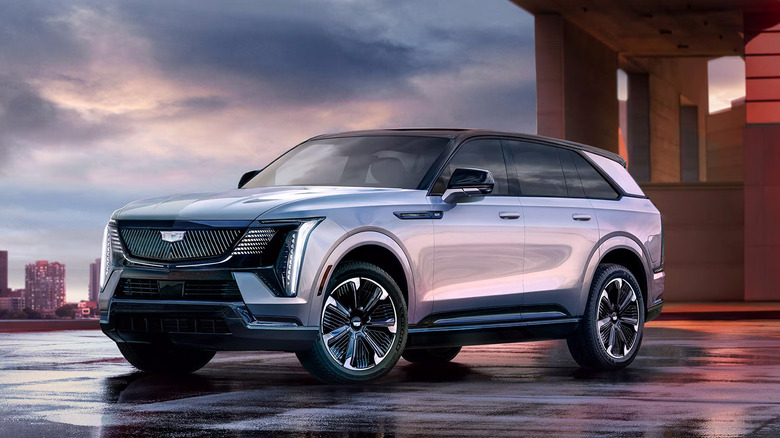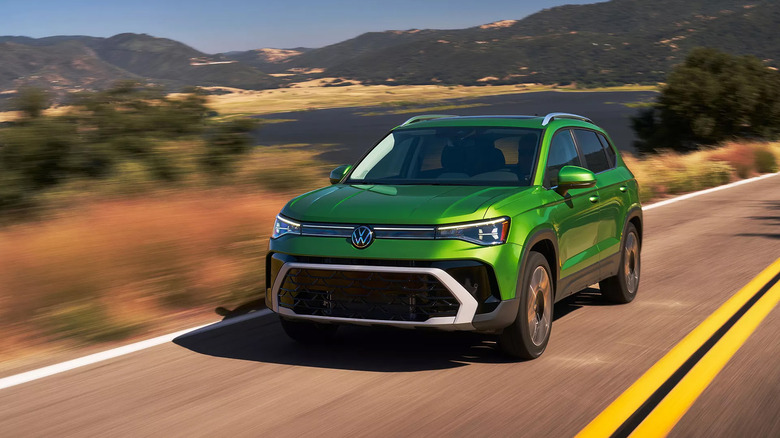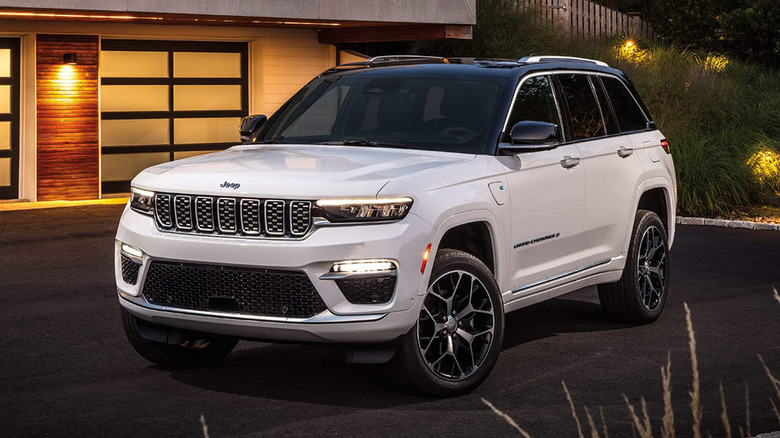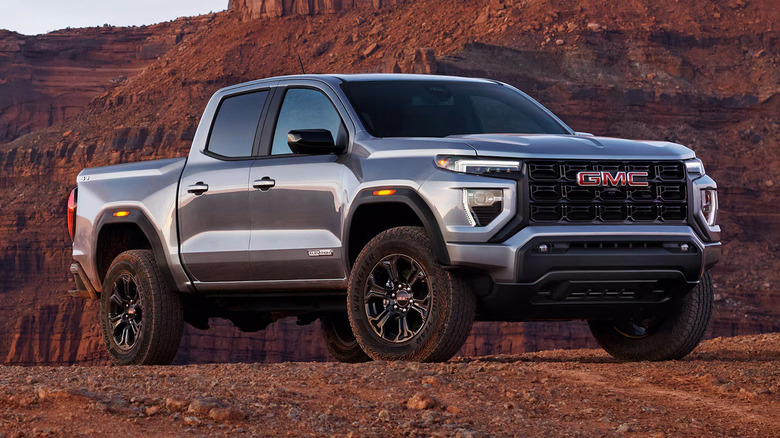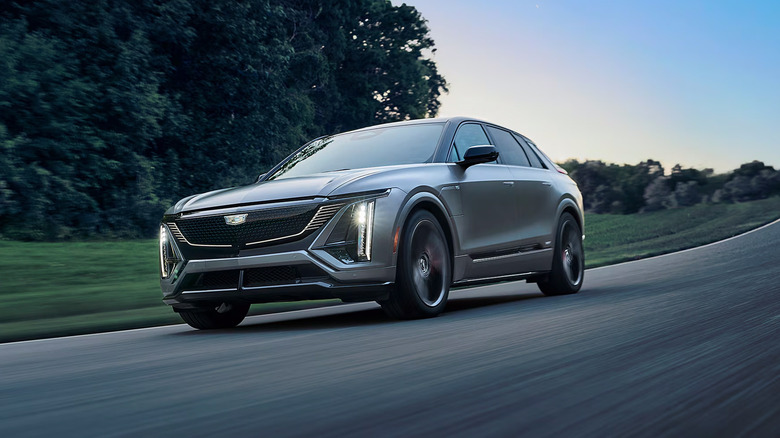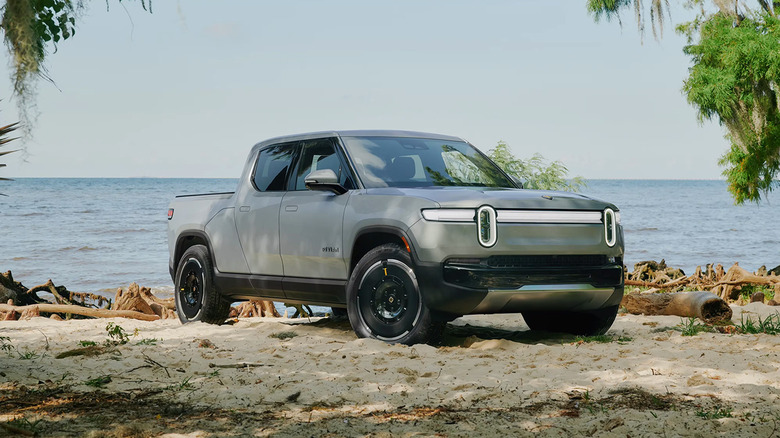5 Of The Least Reliable Car Brands You Can Buy In 2025, According To Consumer Reports
Few areas are more important than reliability, particularly in today's economic climate. As of July 2025, the average price to purchase a brand-new car in the U.S. was $48,699, akin to the sort of numbers we saw when the pandemic hit. Even if you go for a used model instead of one fresh out of the dealership, you'll still be spending considerably more than before the world had to shut down in 2020. This has only made reliability more crucial as buyers seek to get their money's worth to the fullest extent, and some brands manage to offer that better than others.
According to Consumer Reports, automakers like Subaru and Toyota, and subsequently Lexus, lead the way when it comes to reliability. In the outlet's study, a total of 22 brands were included, using owner feedback from a wide variety of nameplates to give an average score. While the Japanese brands come out on top, a handful of all-American manufacturers find themselves at the bottom of the list, with common issues being shared among the main culprits for the poor reliability findings. Here's a look at the five least reliable car brands on the market in 2025, according to Consumer Reports' members.
Volkswagen
Volkswagen has seen its fair share of quarrels and controversy, particularly in recent years. Dieselgate is, without a doubt, the toughest challenge that the automaker has faced in the 21st century, costing up to $34.8 billion in fines and legal costs, but even years after that chapter was closed, Volkswagen still finds itself among a group it certainly doesn't want to be with. In Consumer Reports' most recent study, the outlet found Volkswagen to be the fifth least-reliable car brand on the market, with certain nameplates causing most of the trouble for owners. The brand gets a predicted reliability score of 34/100.
The parent company's lineup isn't quite as expansive as some of the manufacturers that the German conglomerate owns, but it still makes sure to appeal to a wide market with the Jetta sedan, Golf hatchback, a fleet of SUVs, and the all-electric ID.4 and ID. Buzz models. Considering how many Americans are understandably jumping on the crossover train, that's where the most brand-new VW models are positioned, but the most affordable of the bunch, the Taos, drags the reliability score down. Owners have frequently reported problems with the SUV's electronic systems and brakes, specifically. The ID.4 also doesn't help boost the standings, receiving an individual score of 29/100.
Jeep
Unfortunately, for a handful of the largest American automakers, the outlook is pretty bleak, at least according to Consumer Reports. That's not to say that all American brands should be avoided regarding reliability, with Buick and Ford holding their own in the average category of the outlet's study. Not up there with the likes of its Japanese rivals, but still decent. However, the report shows Jeep, a brand that champions practicality across the current lineup, down towards the bottom of the list, with two nameplates standing out.
The Wrangler may be the flagship model for the Ohio-based brand, but it might not be as dependable as you'd hope an off-road-focused trail hunter would be. With a predicted reliability score of 27/100, it isn't at the bottom of the barrel, but unfortunately, it contributes to Jeep's lower market position. Alongside the Wrangler, the Grand Cherokee doesn't help the cause, with owners complaining of drive system issues, steering vibrations, and leaks, to name a few. Faults with the crossover's electrical systems are another major cause for concern among owners, resulting in a lower score of 22/100 for the SUV. All in all, Jeep comes in 19th place out of the 22 brands included in Consumer Reports' recent survey, with a score of 33/100.
GMC
GMC is designed to be more premium than Chevrolet but not quite as luxurious as Cadillac, keeping GM competing at price points where comfort and practicality can meet. Looking at the brand's current fleet, there aren't anywhere near as many nameplates available brand new compared to the two aforementioned brands, which, while still covering plenty of ground, hurts the automaker when it comes to its average reliability.
SUVs may also be a core segment for GMC, but the pickup truck is what made the brand as renowned as it is today. The 2025 model year Canyon is priced at $38,400 (plus a $1,695 destination charge), but the entry-level model seems to be one to look out for when it comes to reliability. Consumer Reports has it as the joint-second most unreliable vehicle on the market, only getting a score of 15/100. The Canyon is yet another to fall victim to electronic issues, with some owners needing the entire infotainment system replaced.
With a score equaling that of Jeep at 33/100, GMC finds itself as the third most unreliable automaker in the U.S. The brand fairs slightly better on the used market, however, with a score of 36/100. Still, not a stellar score by any stretch.
Cadillac
Keeping on topic with Cadillac, GM's top brand, unfortunately, can't match its industry-leading luxury with reliability, at least according to Consumer Reports' owner survey. Cadillac has been steadily growing its lineup in recent years, specifically within the EV segment. It's also now the last American brand to offer a brand-new sedan while also appealing to the SUV segment across all sizes, but it's the recent investments in electric power that damage the brand's rating.
GM isn't quite as committed to EV production after the market caused essentially every automaker to backtrack on their plans, but Cadillac remains the key brand for competing in the still relatively new segment. The Lyriq was the first all-electric Cadillac to hit dealerships in 2022, and a few owners had to go back to where they bought it to fix some sizable problems with the mid-size crossover. The battery itself is cited as the crux of the isssues with the Lyriq, requiring software updates to get it back to working order.
Consumer Reports has Cadillac all the way down in 21st place out of the 22 brands with predicted reliability, receiving a score of just 27/100 overall. General Motors putting aside large sums of money to refocus on combustion engines may help Cadillac's case in the future, but as of now, its EVs don't seem to hold up against their established gas-powered siblings in the all-important area of dependability.
Rivian
Rivian being at the very bottom of Consumer Reports' list of the most unreliable brands is certainly a shame, but not entirely surprising given the outlet's findings elsewhere. With EVs having different issues than gas-powered cars, focusing solely on electric power, coupled with Rivian only being a few years old, understandably gives the California-based startup growing pains it must address over time. Rivian is set to expand its lineup in the coming years with models like the R2 and R3, but as of now, only the R1S SUV and R1T pickup are available.
With the only major difference between the R1S and R1T being the trunk in the former and the bed in the latter, the chance for one of them to bolster the brand's reliability data is void, as both models use the same architecture underneath. While we loved driving the R1T in our review of the 2025 model, Consumer Reports members frequently reported issues with the battery pack used for the EVs, more specifically with the charging. Battery problems also subsequently have negative effects on the climate systems. The R1T receives a score of 14/100 for reliability, ranking Rivian 22nd among 22 brands overall.
